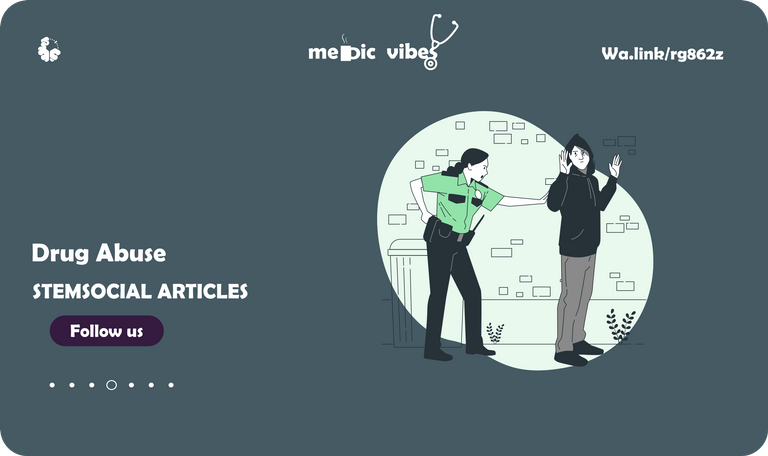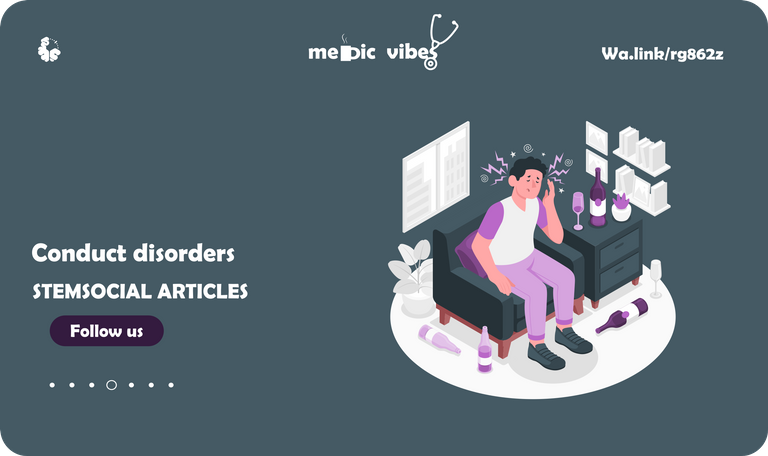In the last post, we saw how:
- Substance abuse, also known as drug abuse, refers to the use of drugs in a manner that is harmful to the individual or others.
- Study examines drug abuse in Nigeria, suggests prevention interventions.
- Combined medical, psychological, social approach to substance abuse treatment.
Welcome to Medic Vibes, where we discuss mental health disorders and make sense of them. Dr Ebingo Kigigha is a medical doctor (aspiring psychiatrist) and creative person (illustration and music). This has been our routine for four consecutive months. This month will be dedicated to substance abuse. In the first month, we discussed Depression, and in the subsequent month, anxiety. We just finished with Conduct disorders.
In this post, we are looking at A Nigerian Study on Substance Abuse. To learn more just keep scrolling down. You can also skip to the key point of the post if you which or go to the conclusion to get the summary.

The National Institute of Drug Abuse and similar agencies have conducted studies on substance use in the United States of America. In 2012, it was found that 22 million people, starting at the age of 12, suffered from drug-related disorders. 15 million of those were noted to abuse alcohol. When considering the age at which they began to use drugs, it was noted that those who started using drugs at the age of 14 were more likely to become addicts. This finding was for substance abuse in general, but it was more common specifically for alcohol. 21-year-olds who started drinking at the age of 14 made up 15% of alcoholics, compared to the 3% who started at 21 or at a more advanced age.
The rates of alcohol abuse vary for different age groups. In 2021, the rate of those dependent on alcohol was 19% for those 18 to 25, 6% for those 12 to 17, and 7% for those 26 and above. 65-year-olds only make up about 1% of those using substances and it is seen as the "burnout" age.
The way substance abuse etiology is seen is that it is probably a result of many factors interacting together to cause this condition. There is a loss of critical thinking surrounding the specific drug, although there is still some critical thought when they go about the process. It is also worth noting that not everyone will experience the effects of drug use in the same way and they will have different motivating factors.
From different hypotheses, it can be noted that factors play a role at different points during the pathophysiology of this condition. The main factors are availability, acceptability, and peer pressure. These are the initial factors that may lead to a person wanting to try drugs. Other factors that come into play include the person's behavior, the person's specific drug interaction, and the effect of the drug on the person. The drug's action, dependence, adverse effects, and the ability to recover from dependence are some other key factors.

Substance Abuse in Nigeria(Introduction)

Image by storyset on Freepik
Substance abuse is becoming a big issue in the medical community. According to estimations by the United Nations Office of Drugs and Crime (UNODC), nearly 272 million people used drugs in 2018. In 2017, there were approximately 600,000 deaths due to drug use worldwide. There is also a strong correlation between drug use and crime, poor financial choices, poor life choices in general, and terrorist behavior. The reason the world is addressing the issue of drug abuse is because of its detrimental effects on healthcare, law, and enforcement of law.
Nigeria is currently facing a problem with drug abuse as it continues to rise and affect the broader society. As the largest country in Africa in terms of population, it has become a center for drug peddling, and its population is mostly made up of youth. In a 2018 study, the UNODC found that 14% of Nigerians had used drugs in 2017. They also found that 20% of those who had used drugs were suffering from a disorder related to their drug use. Drug use was listed as the cause of many criminal activities such as stealing and theft.
Due to the 400 ethnic groups in Nigeria and the many religions practiced in the country, the way drug use is seen in Nigeria is not easy to pinpoint because of the diversity of thought that can be seen in the nation. Some tribes in Nigeria, for example, do not see the use of some drugs as drug abuse, even when they are well-known to cause changes in behavior.
Even though Nigeria exists in this cultural context, there is a general view on drugs that can be noted among those in law enforcement, clergy, education, healthcare, and parents. There have been attempts to slow down and put an end to drug abuse in Nigeria. These attempts have been related to seeking information from what is available demographically. Most of the available information on drug abuse is noted from news, but with new studies emerging, there are newer, organized scientific data available. Previous attempts have been made to summarize some of this new information, but they were not done in a systematic manner.
In this study, there are attempts at reviewing the available literature and summarizing it.

Treatment for substance abuse
The treatment of comorbidities in substance abuse typically involves a multi-disciplinary approach. This may include psychological therapy, such as cognitive-behavioral therapy, to address underlying mental health conditions, such as depression and anxiety.
Cognitive behavioral therapy (CBT) is a commonly used treatment for comorbidities associated with substance abuse. This type of therapy focuses on identifying and changing negative thoughts, beliefs, and behaviors that contribute to the individual's substance abuse.
During CBT, the therapist will work with the individual to identify and challenge negative thoughts, beliefs, and behaviors related to their substance use. They will also teach the individual coping skills and strategies to help them manage cravings, triggers and high-risk situations. The therapy also includes teaching individuals how to identify and change negative self-talk and how to maintain a positive outlook.
In addition, CBT can also be used to treat comorbid disorders such as depression, anxiety, and PTSD. These conditions often co-occur with substance abuse and can make it more difficult to overcome addiction. By addressing these underlying mental health issues, CBT can help individuals to better manage their substance abuse and improve their overall well-being.
Moreover, CBT is also used in conjuction with other therapies such as Motivational Interviewing, Mindfulness-based interventions, and Contingency Management in treating comorbidities of substance abuse. It helps individuals to build a strong foundation for their recovery, and to make a lasting change.
Medication may also be used to manage symptoms of comorbid conditions, such as antidepressants for depression or anti-anxiety medications for anxiety. In addition, the individual's substance abuse treatment plan may include support groups, such as 12-step programs, and educational and vocational programs to address the impact of substance abuse on the individual's life. Furthermore, if the individual has any physical health conditions, they may need to receive medical care as well, in order to address the side effects of substance abuse or the underlying condition that led to the abuse in the first place.
Long-term follow-up and monitoring are also crucial to ensure that individuals maintain their recovery and prevent relapse.
Questions
- What did you learn about Substance abuse?
Conclusion
- Epidemiology of substance abuse in America, rates vary by age group.
- Drug abuse rising in Nigeria with youth affected, leading to crime and poor life choices.
- Treatment of comorbidities in substance abuse with cognitive-behavioral therapy and multi-disciplinary approach.

References
Page demarcations made with Inkscape.org


